February 18th, 2023
6minute read
Flying a Cobra gunship is a bit like wearing it.
The aircraft just wraps around you.
Particularly from the front seat, the view is simply spectacular.
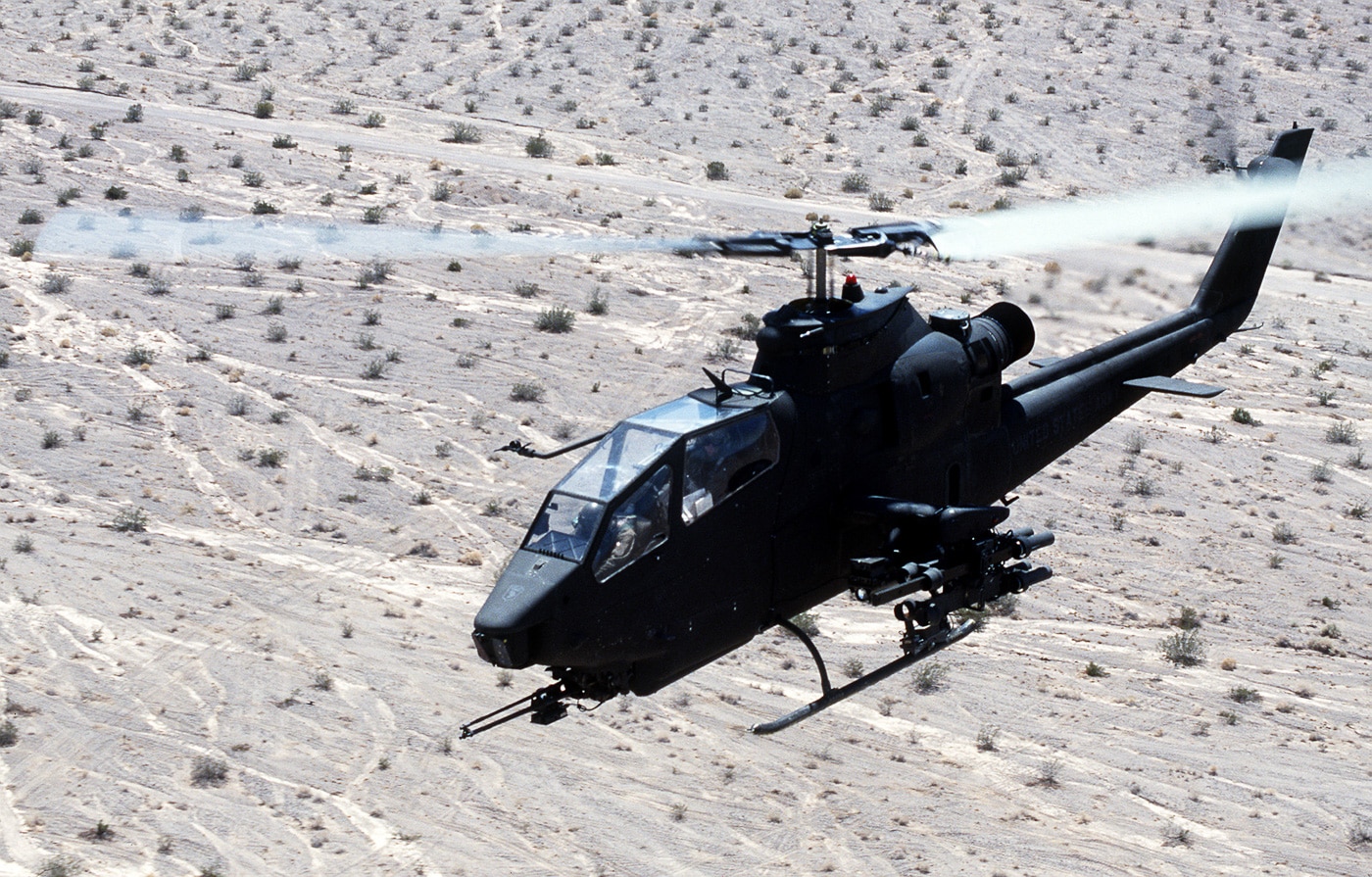
The American AH-1S Cobra represented an extremely refined take on the attack helicopter concept. Here is one shown on a mission during Exercise Gallant Eagle ’86. Image: NARA/TSgt. Jose Lopez
The S-model represented the apex of Cobra evolution in Army service.
They were universally referred to as Snakes.
It was an undeniably sexy beast.
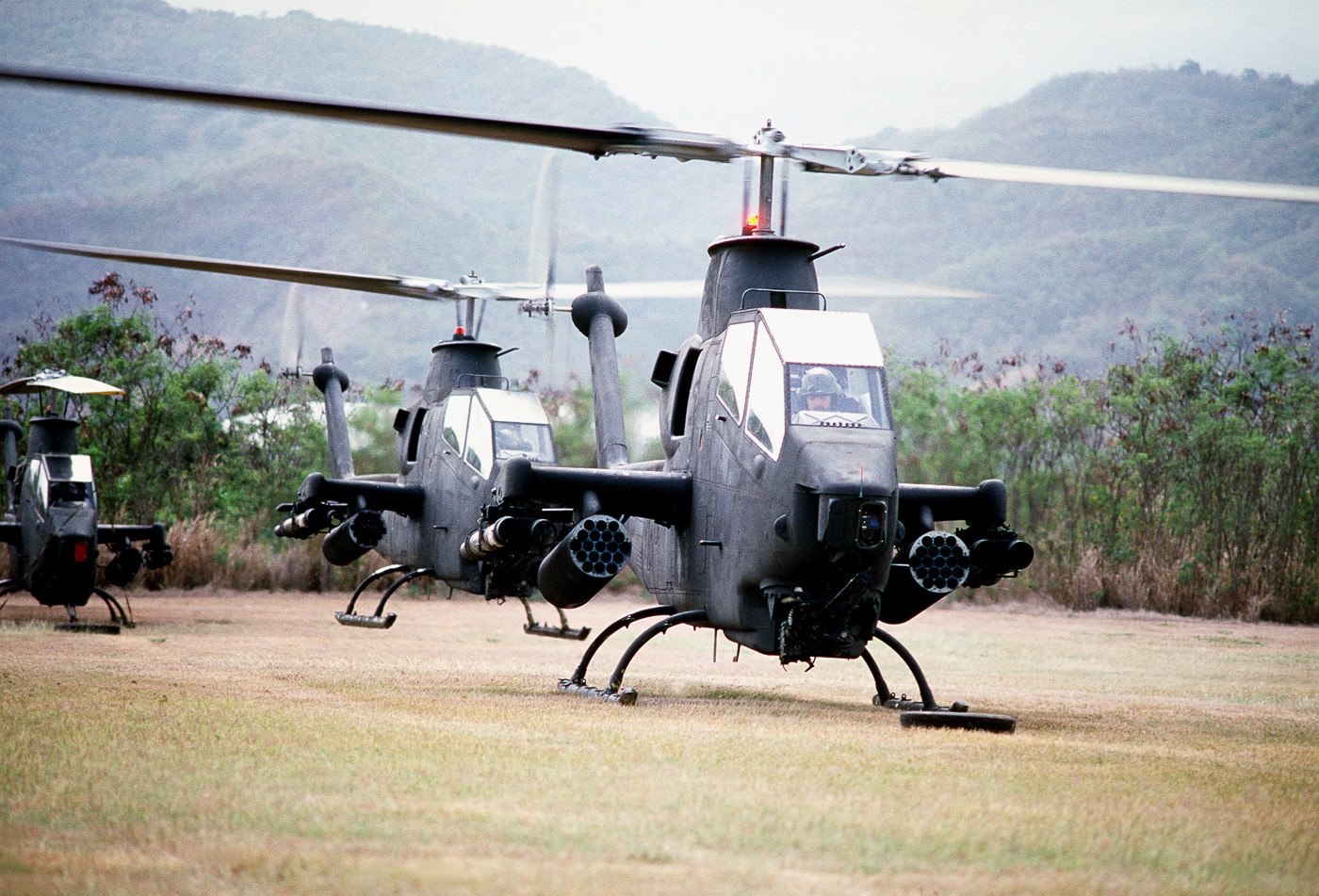
Three AH-1 Cobra gunship helicopters of the U.S. Army’s 17th Cavalry participate in Operation Ocean Venture ’84. Image: NARA/SSgt. Phil Schmitten
There are two broad categories of helicopter rotor systems.
The semi-rigid design found on Hueys, Army Cobras, and OH-58s is akin to a teeter-totter.
The practical differences are fairly significant.
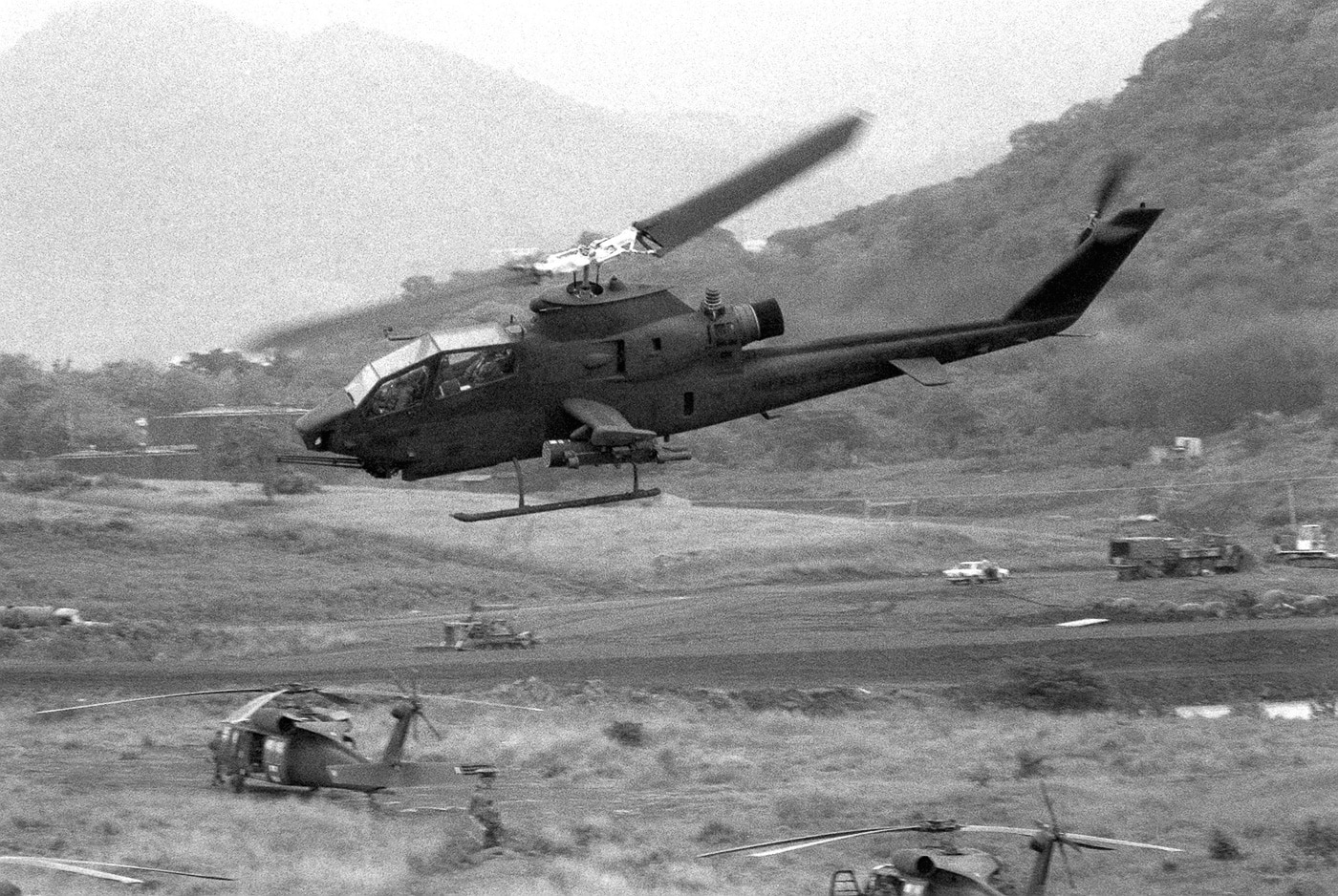
An AH-1 Cobra helicopter flies over several UH-60 Blackhawk helicopters parked in a field at Point Salines Airfield during Operation Urgent Fury. Image: NARA
Pitching the nose down sharply unloads the rotor head and flirts with weightlessness.
Be unduly aggressive with this, and the rotors can come apart.
Young men are so terribly stupid.
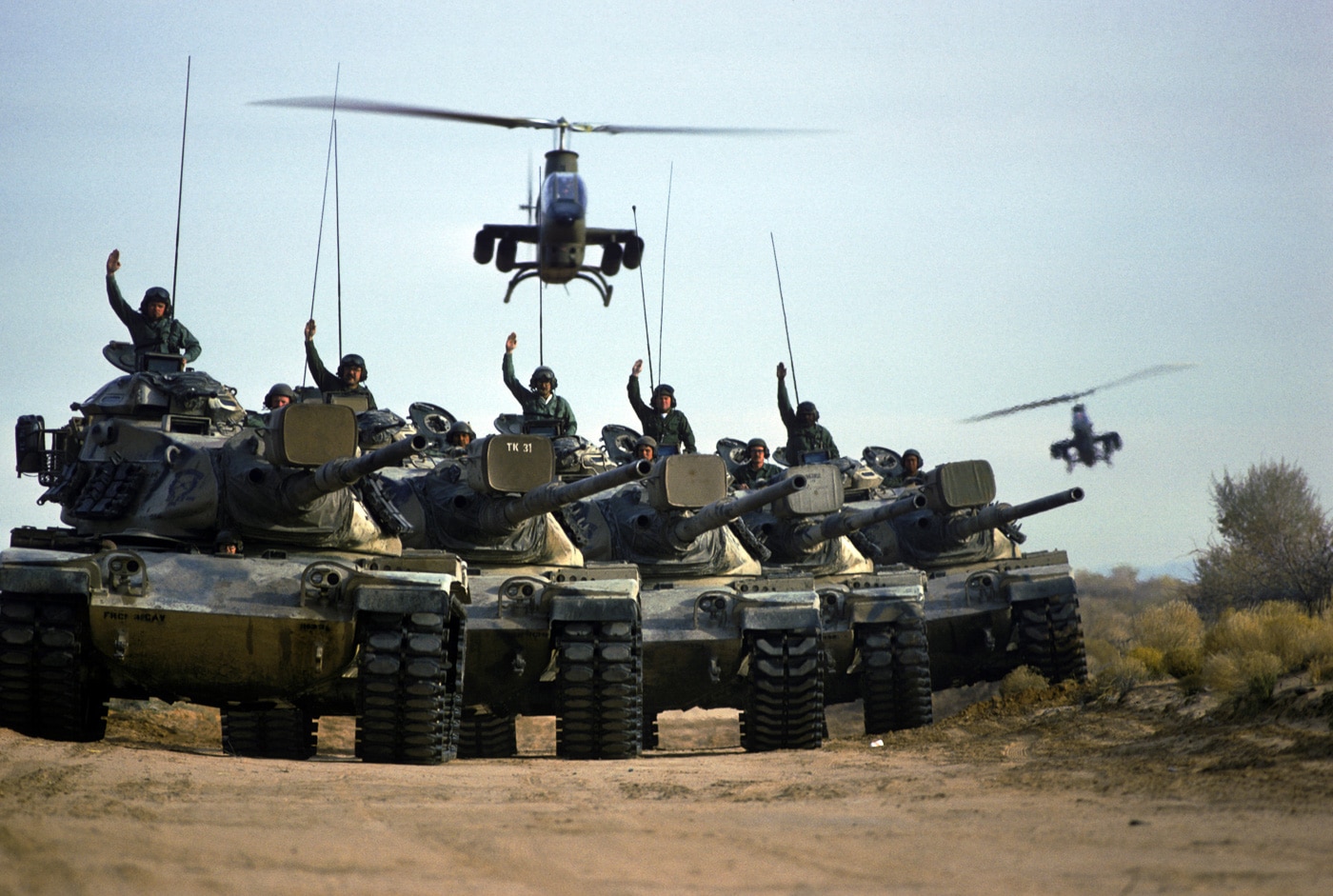
M60 main battle tanks work with a pair of AH-1 Cobra helicopters in a combined arms field training exercise. Image: NARA
The semi-rigid rotor produces a stark one-to-one vibration as you power up the aircraft.
Its a weird feeling.
Once you get the aircraft up to speed, however, it is a joy to fly.
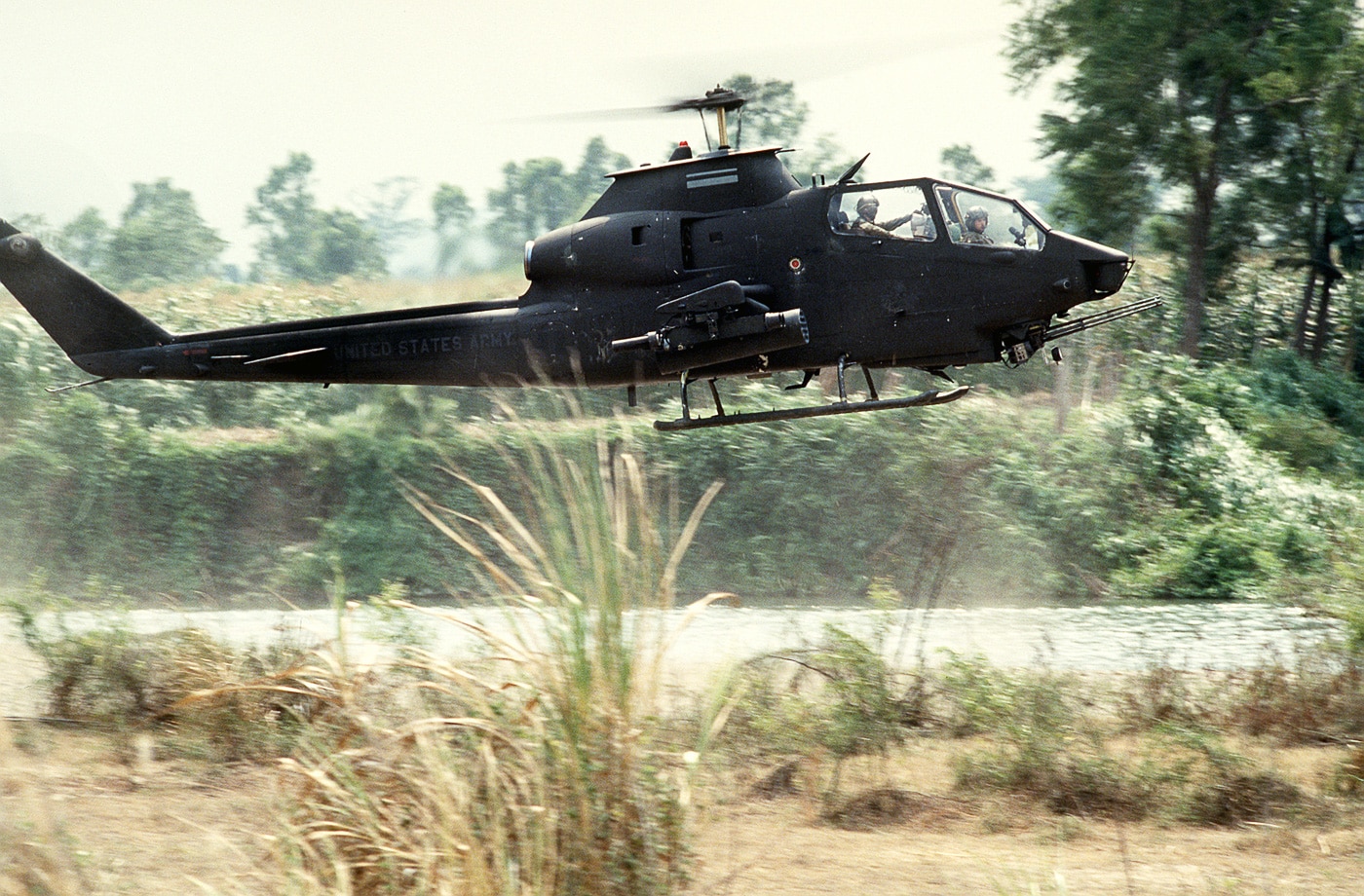
A U.S. Army AH-1 Cobra helicopter gunship participates in Exercise Solid Shield ’87. Image: NARA
The first dedicated helicopter gunship was actually adapted from the piston-driven H-13.
TheH-13was the grasshopper-looking aircraft used on the TV showMASH.
However, this spindly machine lacked the payload to be an effective gunship.
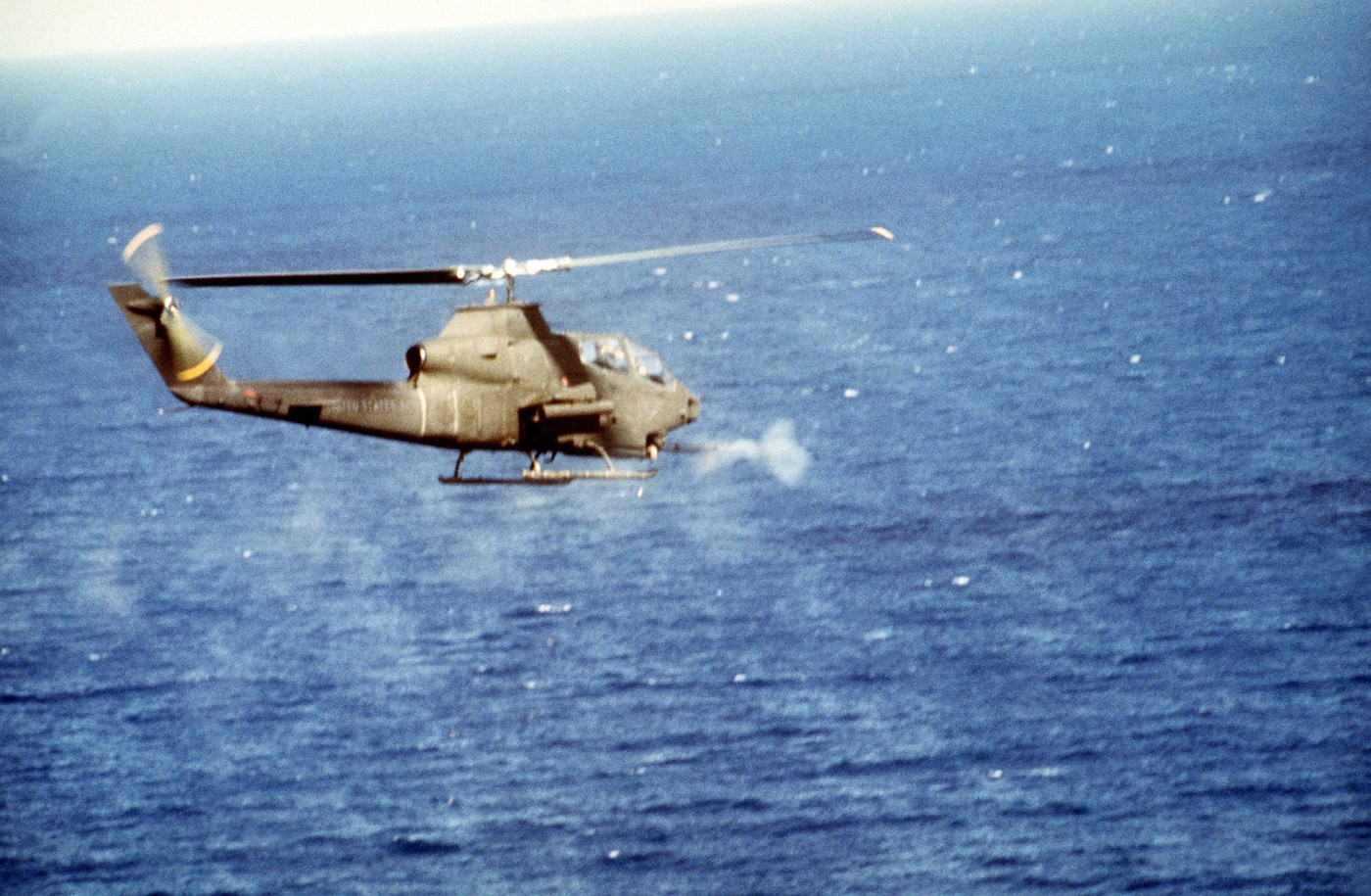
This AH-1 Cobra helicopter fires its 20mm cannon during a combat mission in support of Operation Urgent Fury. Image: NARA
The first truly effective helicopter gunships were Mike-model Hueys.
Sometimes the four M-60s were replaced by a pair of M-134 miniguns.
However, this was a stop-gap solution.
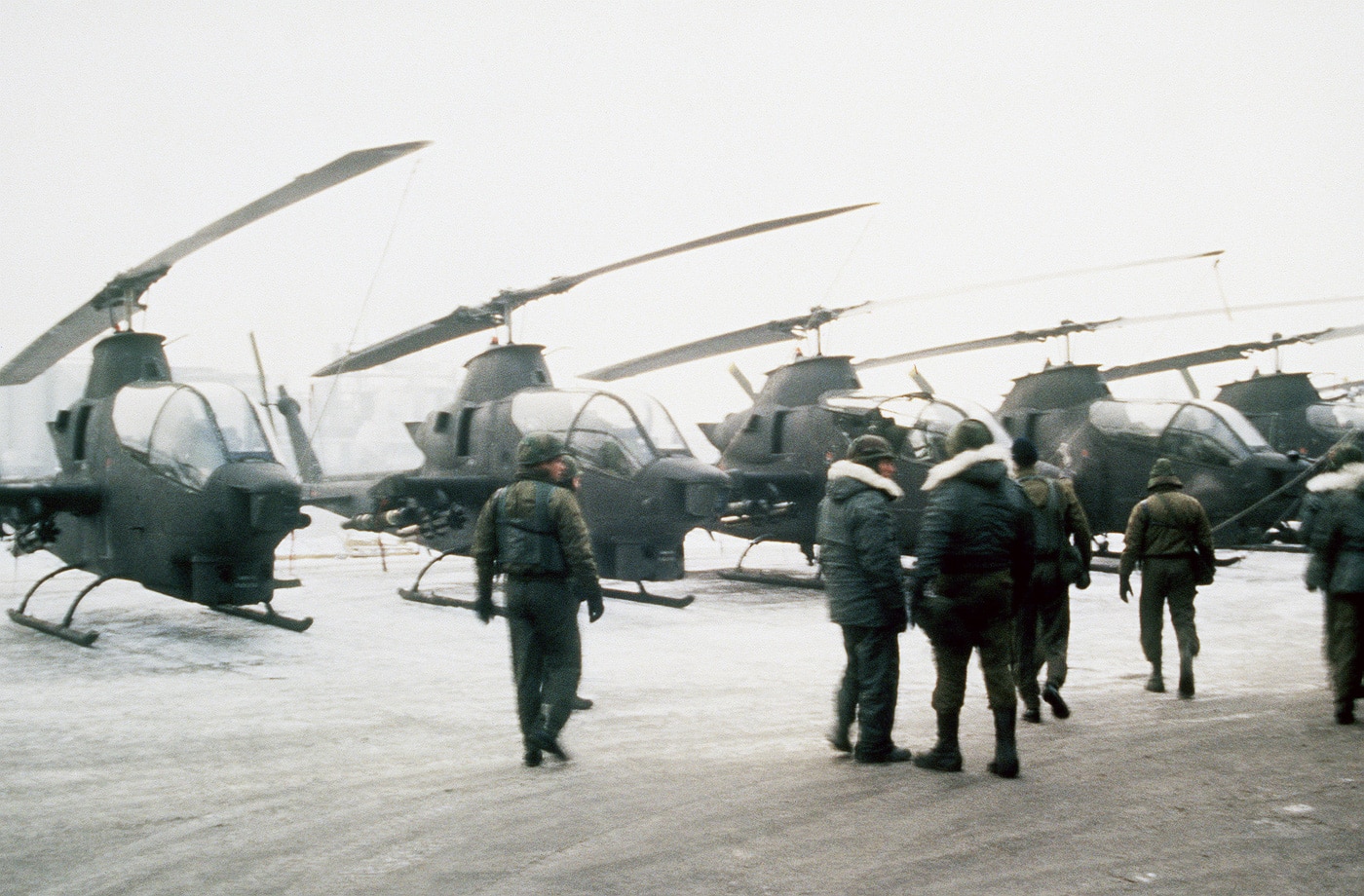
Soldiers approach AH-1 Cobra helicopters staged on a dock during Exercise Reforger ’85. Image: NARA
The result was the new AH-1G Cobra.
The earliest AH-1G Cobras first saw combat service in Vietnam in the summer of 1967.
The main rotor, tail rotor and engine were common between the two machines.
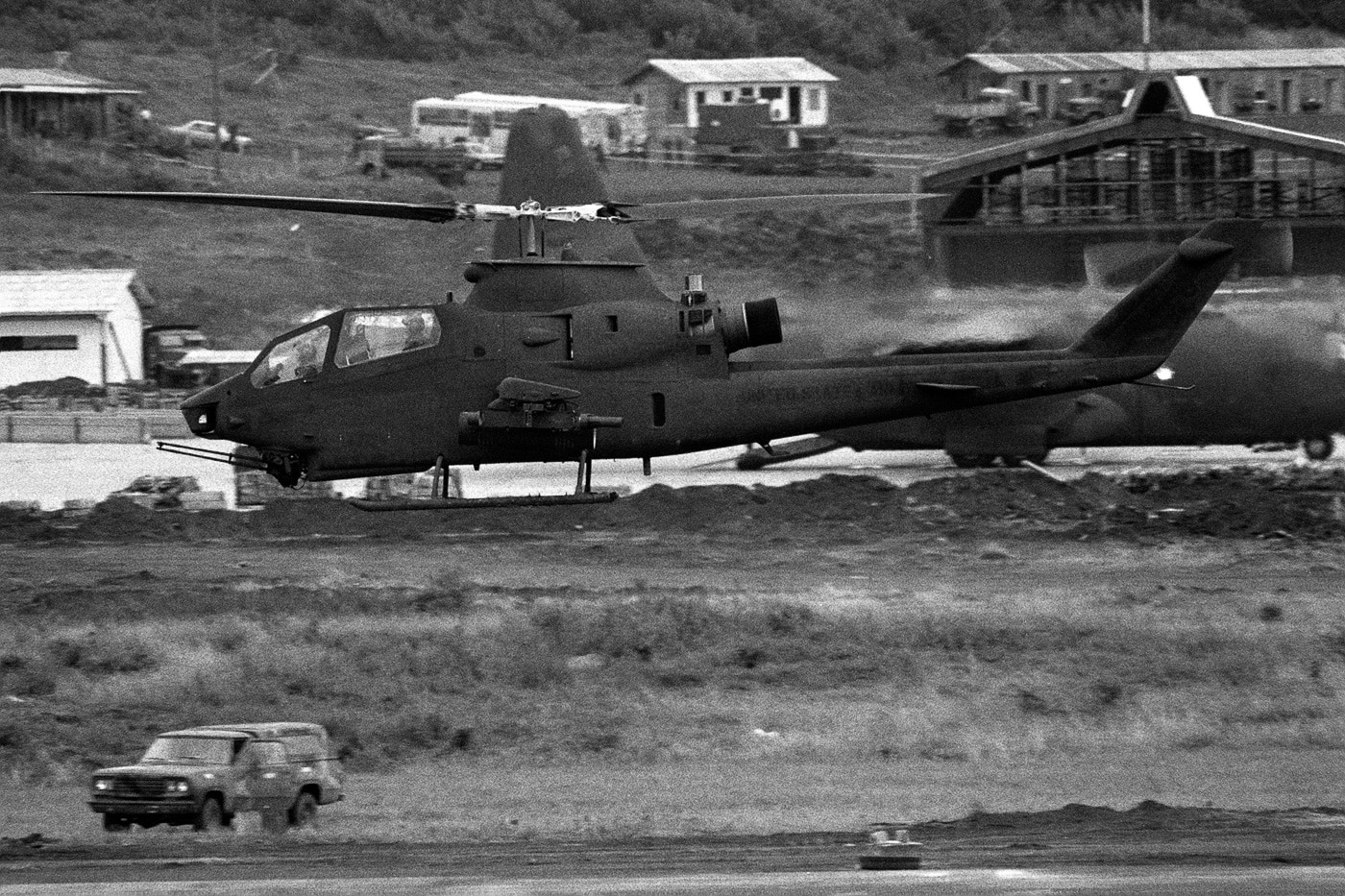
An AH-1 Cobra helicopter in low-level flight during the multiservice, multinational Operation Urgent Fury. Image: NARA
As the machinery evolved so did the tactics.
These two aircrews coordinated their every move via radio.
The co-pilot/gunner in the front ran the chin turret.
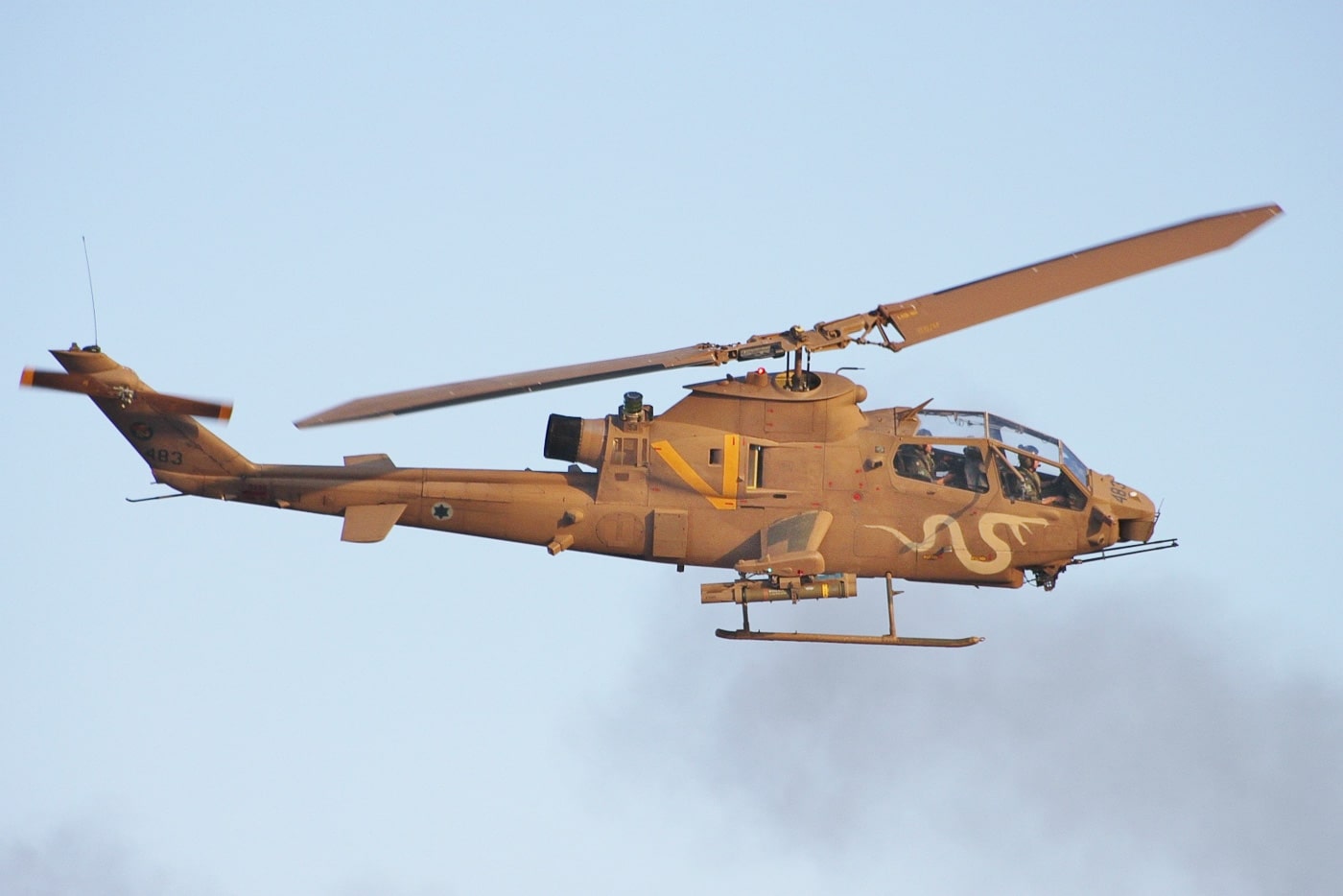
The F- and S-model snakes can be distinguished by their flat-plate canopies, tapered rotor tips, and right-mounted tail rotors. This is an Israeli aircraft. Image:Oren Rozen/CC SA 3.0
The turret typically mounted an M-134 minigun on one side and a 40mm automatic grenade launcher on the other.
Once the Vietnam War drew to a close, the Armys mission evolved.
This demanded a radical rethink of both the design and employment of attack aircraft.
The result was the AH-1F and AH-1S Cobras.
For reasons I never fully understood, the tail rotor was moved to the opposite side as well.
TOW stands for Tube-launched, Optically-tracked, Wired-guided.
These weapons were purpose-designed to kill tanks.
They reach out to around three kilometers.
These late-model Snakes still carried 2.75 rocket pods as well.
Ruminations
I will forever carry a soft spot in my heart for the Cobra gunship.
However, the Cobra was sluggish with a full load of fuel and ammo.
In hot/high conditions, a full combat load would often exceed the aircrafts performance limitations.
A nicely tuned AH-1S cruised at around 149 knots and had a maximum takeoff weight of 9,500 pounds.
Its Lycoming T53-L-703 turboshaft engine put out 1,800 shaft horsepower.




